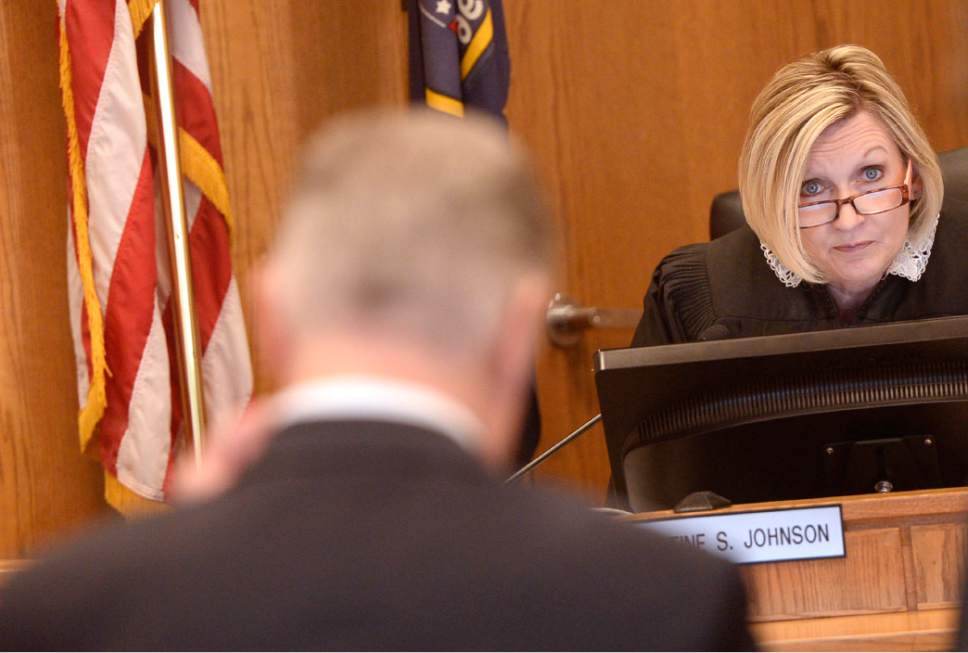This is an archived article that was published on sltrib.com in 2017, and information in the article may be outdated. It is provided only for personal research purposes and may not be reprinted.
Provo • Luke Dollahite, the teen who attacked five classmates with knives and a martial arts weapon last year at an Orem high school, pleaded guilty Thursday to one count of attempted aggravated murder in adult court.
Dollahite, 16, who left five boys seriously injured during the bloody locker-room rampage in November, had pleaded guilty last week in juvenile court to four counts of attempted aggravated murder.
On Thursday, he stood beside his lawyer with his hands bound in cuffs in 4th District Court, as he answered questions from Judge Christine Johnson with a tone of respect and signed documents to enter his guilty plea.
Sentencing is set for June 22 before Johnson.
As part of a plea deal, prosecutors have agreed to recommend a 10-year-to-life prison term for the conviction in adult court, which had an enhancement of serious bodily injury.
Utah law states that attempted aggravated murder generally carries a 15-year-to-life sentence, but allows a judge to order a lesser 6-year-to-life or 10-year-to-life sentence if the court finds it is "in the interest of justice."
Attorneys have also agreed to recommend that Dollahite not begin serving prison time until he is discharged from secure care in the juvenile system. The Youth Parole Authority will ultimately decide how long Dollahite remains in the juvenile facility, but the time cannot go beyond his 21st birthday.
Prosecutors will recommend Dollahite's prison sentence run concurrent to his time in secure care for the juvenile convictions, said Deputy Utah County Attorney Sam Pead, but the decision is ultimately left to the Board of Pardons and Parole.
The agreement for Dollahite's combination of adult and juvenile convictions is "sufficient" based on the severity of Dollahite's offense.
"Obviously this is a heinous and violent case, but there are some mitigating factors to take into account," Pead said, such as the fact that Dollahite had turned 16 about a week prior to the incident and "other considerations that have to do with his mental health."
The maximum punishment that could have been imposed in juvenile court alone wouldn't have been sufficient for the crime, Pead said, adding that the agreed upon arrangement "provides an appropriate balance — the best way of serving justice but also seeking to rehabilitate."
Prior to going to school on Nov. 15, Dollahite gathered a bo staff, knives and other "tools to inflict physical violence against others," prosecutors wrote in charging documents. He began his attack by striking a teen with the bo staff, which broke, before stabbing the four other boys and himself.
He later told police that he was not targeting anyone in particular, but was trying to create as many victims as possible. During his juvenile court sentencing, his parents apologized and said their son suffered from mental illness.
Pead said he was grateful Dollahite, his parents and defense attorneys could see that this was "a good outcome, considering where we started with this case."
Pead also expressed appreciation for "victims who went through horrendous things, but still worry about Mr. Dollahite getting help, which is very admirable."
The Salt Lake Tribune generally does not identify juveniles charged with crimes unless they have been certified for adult court.
Twitter: @mnoblenews







